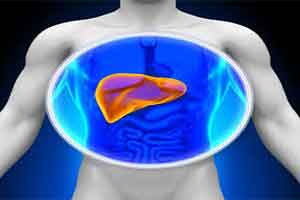- Home
- Medical news & Guidelines
- Anesthesiology
- Cardiology and CTVS
- Critical Care
- Dentistry
- Dermatology
- Diabetes and Endocrinology
- ENT
- Gastroenterology
- Medicine
- Nephrology
- Neurology
- Obstretics-Gynaecology
- Oncology
- Ophthalmology
- Orthopaedics
- Pediatrics-Neonatology
- Psychiatry
- Pulmonology
- Radiology
- Surgery
- Urology
- Laboratory Medicine
- Diet
- Nursing
- Paramedical
- Physiotherapy
- Health news
- Fact Check
- Bone Health Fact Check
- Brain Health Fact Check
- Cancer Related Fact Check
- Child Care Fact Check
- Dental and oral health fact check
- Diabetes and metabolic health fact check
- Diet and Nutrition Fact Check
- Eye and ENT Care Fact Check
- Fitness fact check
- Gut health fact check
- Heart health fact check
- Kidney health fact check
- Medical education fact check
- Men's health fact check
- Respiratory fact check
- Skin and hair care fact check
- Vaccine and Immunization fact check
- Women's health fact check
- AYUSH
- State News
- Andaman and Nicobar Islands
- Andhra Pradesh
- Arunachal Pradesh
- Assam
- Bihar
- Chandigarh
- Chattisgarh
- Dadra and Nagar Haveli
- Daman and Diu
- Delhi
- Goa
- Gujarat
- Haryana
- Himachal Pradesh
- Jammu & Kashmir
- Jharkhand
- Karnataka
- Kerala
- Ladakh
- Lakshadweep
- Madhya Pradesh
- Maharashtra
- Manipur
- Meghalaya
- Mizoram
- Nagaland
- Odisha
- Puducherry
- Punjab
- Rajasthan
- Sikkim
- Tamil Nadu
- Telangana
- Tripura
- Uttar Pradesh
- Uttrakhand
- West Bengal
- Medical Education
- Industry
Bengaluru-based firm says 3D printed liver tissue developed

New Delhi: A Bengaluru-based biotechnology start-up has developed a 3D printed liver tissue that functions like a human liver and can one day be used for full-fledged liver transplants, according to the developers.
The tissues, made of human cells, would allow for inexpensive medical research with decreased reliance on animal and human trials, and could eventually be used for liver transplants, according to Pandorum Technologies - the company that developed the tissue.
"Our 3D bio-printed mini-livers that mimic the human liver will serve as test platforms for discovery and development of drugs with better efficacy, less side effects and at lower costs," Pandorum co-founder Arun Chandru was reported as saying by ibtimes.com.
Usually, it requires millions of dollars spent over several years for a single new drug to come to the market.
Chandru said the tissue developed by his company would reduce both the cost and time taken for new drugs to be developed and tested.
Apart from clinical trials, the 3D printed tissue could be put to other uses as well.
"Development of artificial organs has numerous clinical uses. Cell based organoids can be used to develop bio-artificial liver support systems for preserving life in patients who have developed liver failure," said company co-founder Tuhin Bhowmick.
Bhowmick added that "in the near future, such artificial organs will address the acute shortage of human organs available for surgical transplantation".
The tissues, made of human cells, would allow for inexpensive medical research with decreased reliance on animal and human trials, and could eventually be used for liver transplants, according to Pandorum Technologies - the company that developed the tissue.
"Our 3D bio-printed mini-livers that mimic the human liver will serve as test platforms for discovery and development of drugs with better efficacy, less side effects and at lower costs," Pandorum co-founder Arun Chandru was reported as saying by ibtimes.com.
Usually, it requires millions of dollars spent over several years for a single new drug to come to the market.
Chandru said the tissue developed by his company would reduce both the cost and time taken for new drugs to be developed and tested.
Apart from clinical trials, the 3D printed tissue could be put to other uses as well.
"Development of artificial organs has numerous clinical uses. Cell based organoids can be used to develop bio-artificial liver support systems for preserving life in patients who have developed liver failure," said company co-founder Tuhin Bhowmick.
Bhowmick added that "in the near future, such artificial organs will address the acute shortage of human organs available for surgical transplantation".
Next Story


